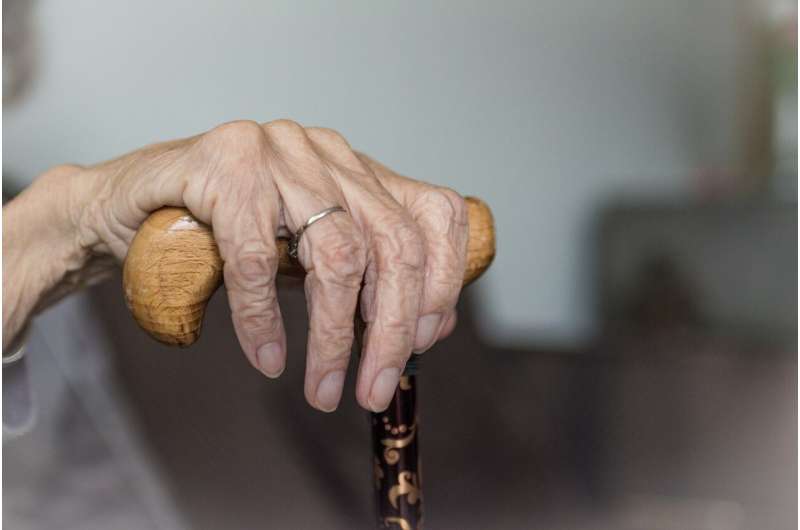Watch and wait strategy could be better than emergency surgery for patients with severe levels of frailty

New research published in Anaesthesia (a journal of the Association of Anesthetists) shows that for patients who are very frail, it may be better to adopt a "watch and wait" approach rather than proceeding to emergency surgery for five common medical emergencies. The study suggests this would actually improve outcomes, says Professor Richard Grieve of the London School of Hygiene & Tropical Medicine.
The study analyzed hospital inpatient data for adult patients with common acute conditions who had emergency admissions to 175 acute National Health Service hospitals in England during 2010–2019. The acute conditions considered were appendicitis (268,144 cases), gallstone disease (240,977), diverticular disease (138,869), hernia (106,432); and intestinal obstruction (133,073). The study compared the effectiveness of two strategies: an emergency surgery strategy, and a non-emergency surgery strategy which included medical management with the possibility of later surgery.
The main outcome measure was the number of days that the patients were alive and out of hospital during the 90 days following the initial emergency admission. The study reported results overall and for pre-specified subgroups including the patients age, sex, number of comorbidities and level of frailty.
Overall, the study found that the average number of days that patients were alive and out of hospital before 90 days was similar between the two strategies for each of the five conditions. However, for patients with severe frailty, the non-emergency surgery strategy led to an average increase in the number of days alive and out of hospital compared to the emergency surgery strategy. For these patients with severe frailty, the average increase in the number of days alive and out of hospital over the 90-day period following the non-emergency surgery versus emergency surgery strategy was 21 days for appendicitis; 6 days for gallstone disease, 39 days for diverticular disease; 19 days for hernia; and 35 days for intestinal obstruction. The majority of patients with severe frailty who did not have emergency surgery, avoided having surgery at all within the 90-day follow-up period of the study.
Professor Grieve explains: "The surgeon, anesthetist and rest of the multidisciplinary team, together with the patient and carers have to decide a patient should have emergency surgery or not. For some patients with acute conditions, it is a finely balanced decision—it's often difficult to decide whether it is better to operate, or if it might be better to give the patient antibiotics and wait for their condition to settle and improve. It's not an exact science, for some patients there is considerable uncertainty about what's best, and these results provide new evidence to help inform that difficult decision. Our study shows that for very frail patients a 'watch and wait approach' may lead to better outcomes than emergency surgery."
The authors conclude: "For patients with severe levels of frailty, emergency surgery strategies may lead to worse outcomes than non-emergency surgery strategies for each of these five medical emergencies. For patients who are not frail, emergency surgery strategies may be more effective for patients with hernia and intestinal obstruction. Further research to inform how best to optimize emergency general surgery provision should therefore recognize that factors such as the patient's frailty level may affect the comparative effectiveness of emergency surgery and non-emergency surgery strategies."
More information: A. Hutchings et al, Effectiveness of emergency surgery for five common acute conditions: an instrumental variable analysis of a national routine database, Anaesthesia (2022). DOI: 10.1111/anae.15730


















